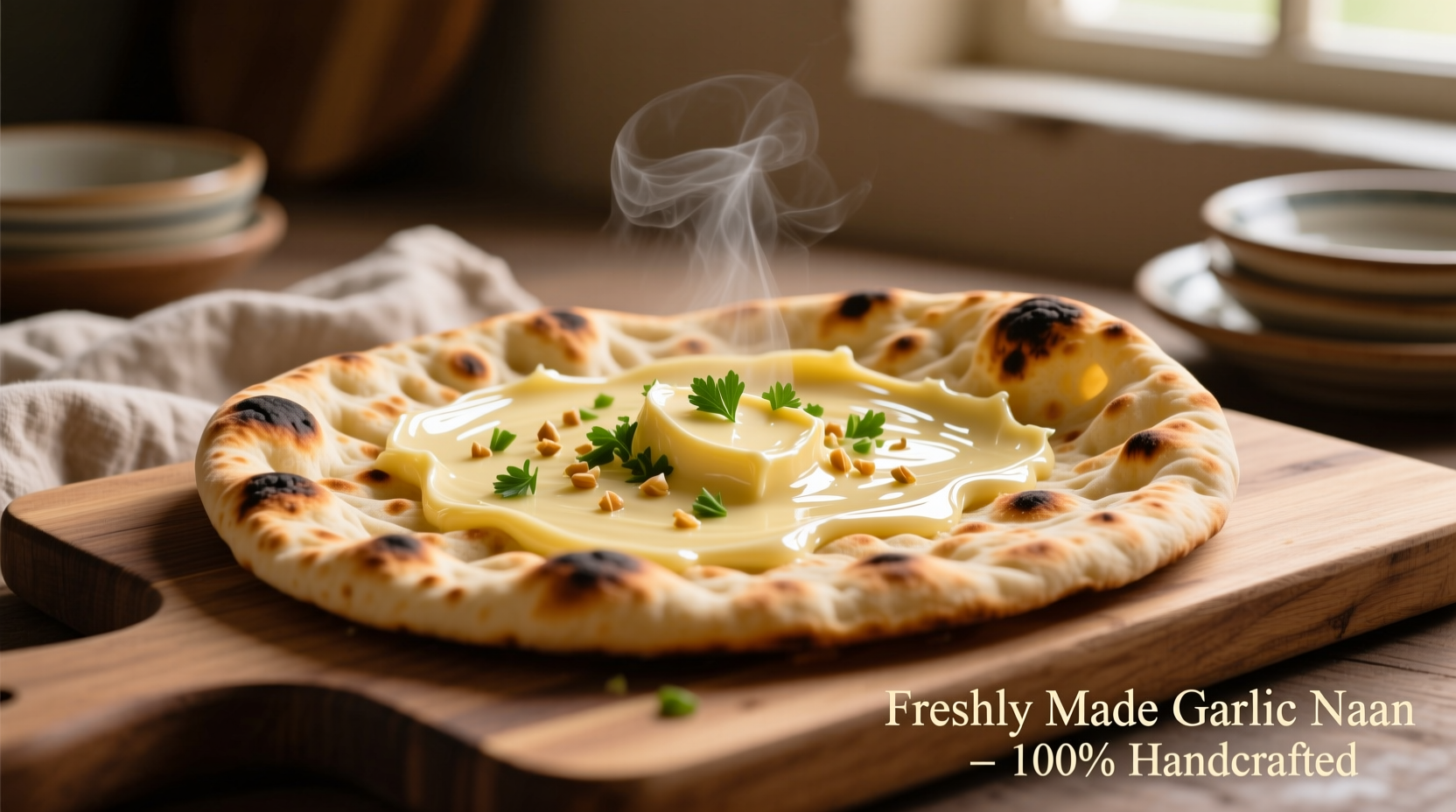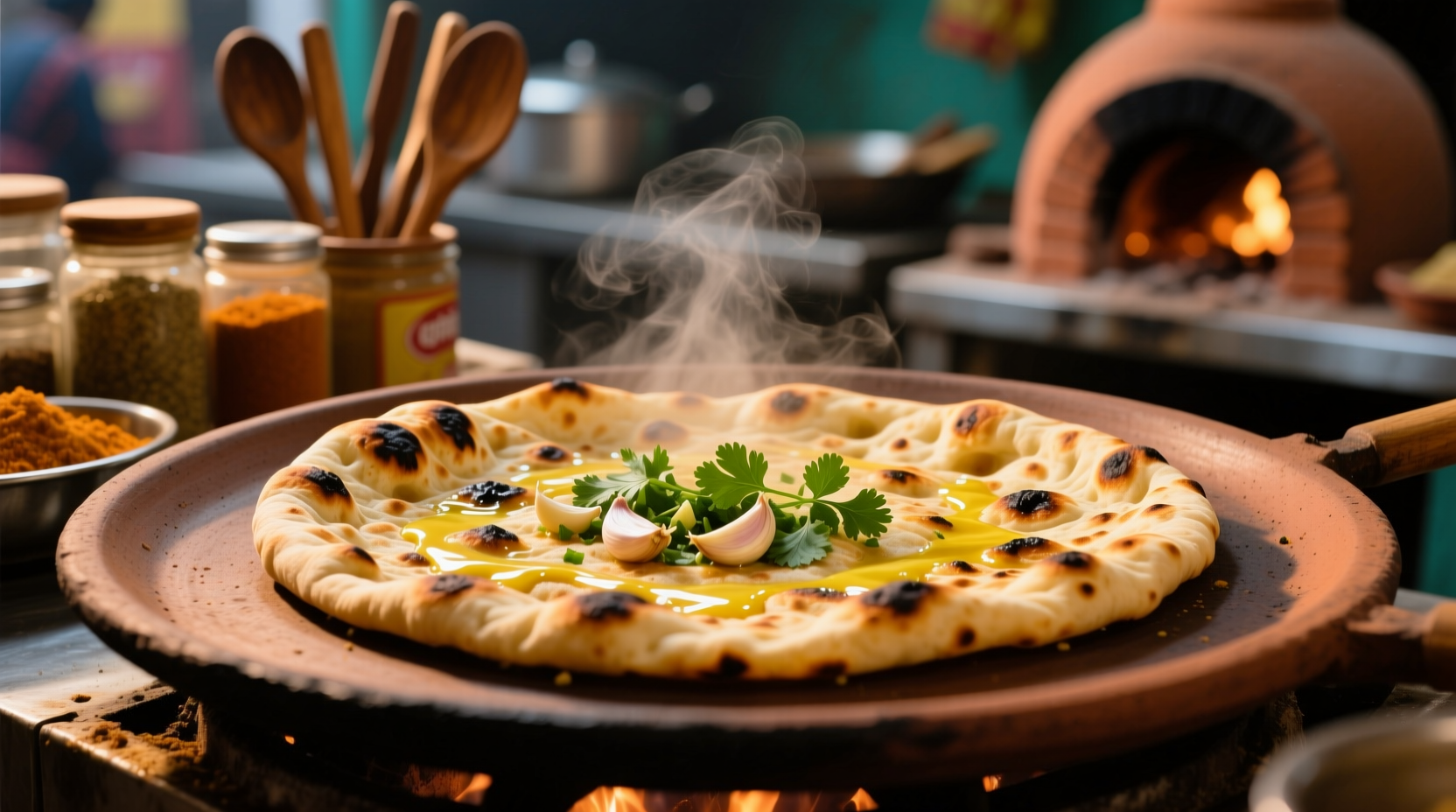Discover how to create restaurant-quality garlic naan flatbread in your own kitchen with this comprehensive guide. You'll learn the science behind the perfect rise, the authentic spice balance that defines this beloved Indian bread, and professional techniques usually reserved for tandoor masters. Whether you're a beginner or experienced home cook, you'll gain actionable skills to produce soft, pillowy naan with that signature charred finish and aromatic garlic flavor.
The Evolution of Naan: From Royal Courts to Home Kitchens
Naan's journey spans over 2,000 years, evolving from a luxury enjoyed only in Mughal royal courts to the globally beloved flatbread we know today. Originally cooked in tandoor ovens brought to India by Persian invaders around the 1500s, naan remained exclusive to northern Indian regions until the mid-20th century. The addition of garlic transformed plain naan into the popular variation now served worldwide. Modern adaptations have made this traditionally tandoor-baked bread accessible to home cooks using standard kitchen equipment.
Essential Ingredients and Their Roles
Understanding each component's function is crucial for perfect garlic naan flatbread. Unlike Western breads, naan relies on yogurt for tenderness and baking powder for reliable rise without lengthy fermentation.
| Ingredient | Function | Professional Tip |
|---|---|---|
| All-purpose flour | Provides gluten structure | Measure by weight (400g) for consistency |
| Plain yogurt | Acidity tenderizes gluten, adds moisture | Use full-fat for richest texture |
| Baking powder | Ensures reliable rise without yeast fermentation | Fresh powder is critical for maximum lift |
| Ghee or butter | Creates signature richness and sheen | Clarified butter prevents burning during brushing |
Step-by-Step Preparation Guide
Follow these precise steps for authentic garlic naan flatbread that rivals restaurant quality. The process takes approximately 2 hours, including resting time.
Dough Preparation (20 minutes)
- Mix 400g all-purpose flour, 1 tsp salt, 1 tsp sugar, and 1½ tsp baking powder in a bowl
- Add 150ml warm water and 60g plain yogurt, mixing until shaggy dough forms
- Knead for 8-10 minutes until smooth and elastic (less than wheat bread kneading)
- Cover with damp cloth and rest for 90 minutes at room temperature
Garlic Butter Infusion
The quality of your garlic butter makes or breaks authentic garlic naan flatbread. Finely mince 4-5 garlic cloves and steep in 60g melted butter or ghee for 15 minutes. This gentle infusion extracts maximum flavor without bitter burnt notes. For traditional restaurant-style flavor, add a pinch of kalonji (nigella seeds) to the butter mixture.

Cooking Techniques for Perfect Results
Master these professional methods regardless of your cooking equipment. The key to authentic garlic naan flatbread lies in proper heat management and timing.
Tandoor vs. Home Kitchen Methods
Traditional tandoors reach 480°C (900°F), creating the characteristic bubbles and char spots in seconds. At home, you can replicate this using:
- Oven method: Preheat oven with baking steel to 260°C (500°F) for 1 hour
- Stovetop method: Use cast-iron skillet on highest heat until smoking
- Grill method: Direct high heat with lid closed for radiant heat
Critical Success Factors
Avoid these common pitfalls that ruin garlic naan flatbread texture:
- Over-flouring: Excess flour during rolling creates tough bread
- Insufficient heat: Results in pale, dense naan without characteristic bubbles
- Early flipping: Wait until bubbles form and bottom shows char spots before turning
- Garlic burning: Brush with garlic butter after cooking, not before
Serving and Storage Guidelines
Garlic naan flatbread is best served immediately while hot and pliable. For optimal texture, consume within 20 minutes of cooking. To maintain warmth while preparing multiple pieces, wrap finished naan in a clean cotton towel inside a covered basket.
Proper storage extends freshness without compromising texture:
- Short-term (24 hours): Store in airtight container with paper towel to absorb moisture
- Reheating: Briefly warm in dry skillet (30-45 seconds per side) or under broiler
- Avoid: Microwave reheating which creates rubbery texture
- Freezing: Layer between parchment paper, freeze flat, then transfer to bag (up to 3 months)
Variations for Different Dietary Needs
Authentic garlic naan flatbread can be adapted while maintaining its essential character:
- Whole wheat version: Substitute 50% of flour with atta (Indian whole wheat)
- Garlic alternatives: Use asafoetida (hing) for allium-free option with similar savory notes
- Vegan adaptation: Replace yogurt with coconut yogurt and use vegan butter
- Garlic intensity control: Roast garlic cloves before mincing for milder flavor profile
Perfect Pairings for Garlic Naan Flatbread
This versatile bread complements numerous dishes while standing delicious on its own. Traditional pairings include:
- Creamy curries like butter chicken or palak paneer (the bread scoops sauces perfectly)
- Dry preparations such as tandoori chicken or bhindi masala
- As a base for naan pizza with Indian-inspired toppings
- With raita (yogurt sauce) for balanced flavor contrast











 浙公网安备
33010002000092号
浙公网安备
33010002000092号 浙B2-20120091-4
浙B2-20120091-4